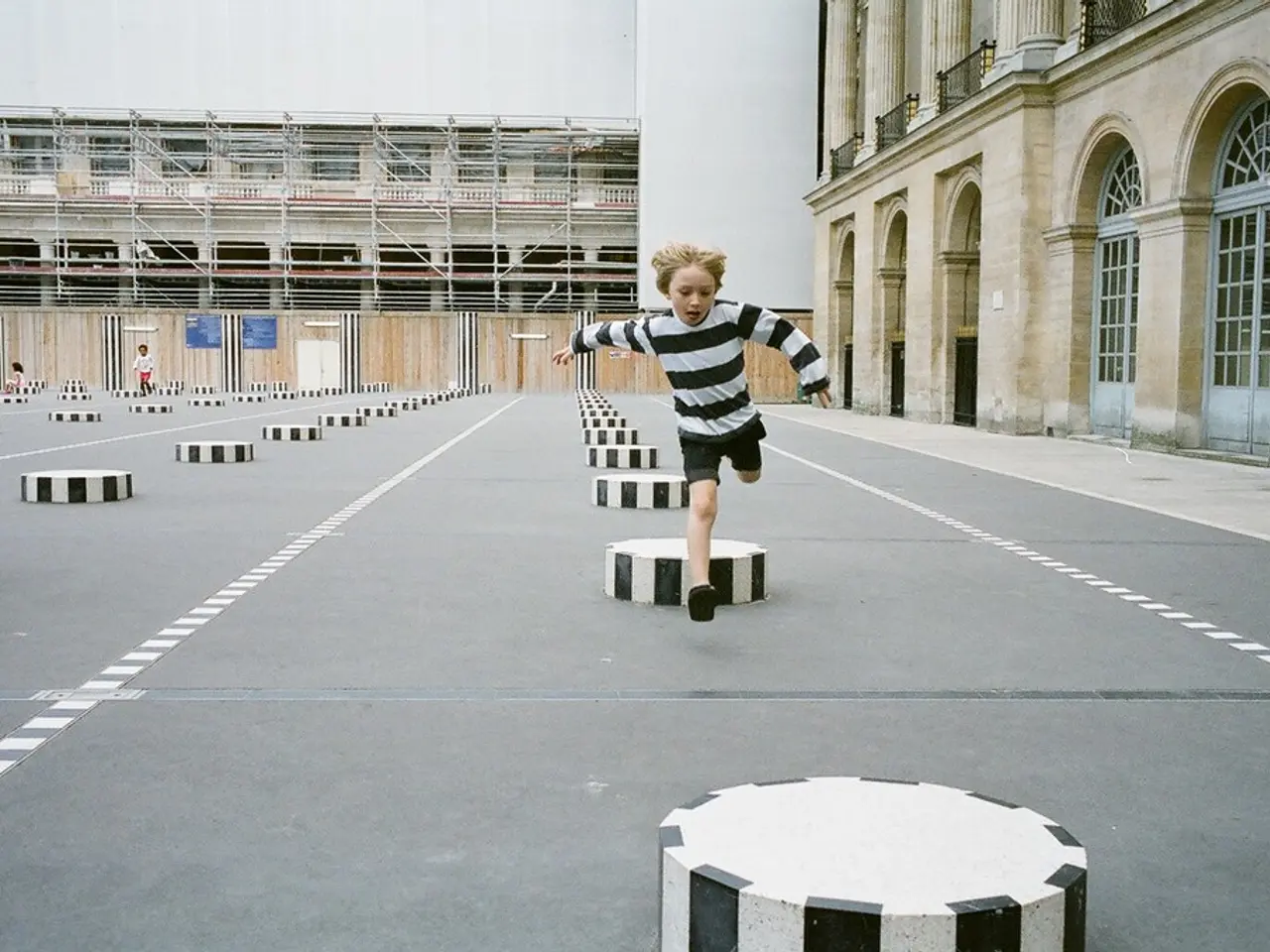Enhancing Educational Preparedness in Preschool Years
Preparing Children for School Success: The 6 Cs of School Readiness
School readiness is a crucial factor in a child's successful transition into formal education. It goes beyond being 'kindergarten ready' and encompasses a range of skills that ensure children are well-equipped to navigate the academic and social challenges of school.
The 6 Cs of school readiness, as outlined by experts, are Cognition, Communication, Collaboration, Creativity, Character, and Care (physical and emotional health). These domains collectively prepare children for a confident and thriving school experience.
Cognition builds early thinking skills like problem-solving, memory, and understanding concepts needed for learning.
Communication develops language, vocabulary, and expression skills essential for following instructions and interacting with peers and teachers.
Collaboration fosters social skills such as cooperation, teamwork, and managing relationships, which smooth social integration at school.
Creativity encourages imagination and innovative thinking that supports learning engagement and adaptability.
Character involves self-regulation, empathy, persistence, and positive attitudes that help children manage emotions and behavior in school settings.
Care (physical and emotional health) addresses fine and gross motor skills, stamina, and healthy habits that impact a child’s ability to participate fully and stay focused during school activities.
Together, these 6 Cs form a holistic foundation for school readiness. They ensure children can adapt to structured learning, develop foundational academic skills, navigate social interactions, and maintain health, all of which contribute to smoother transitions and better academic and social outcomes.
Building these skills can start early. Regular outings to places like the zoo, library, shopping mall, or park can help children learn appropriate behavior when outside. Reading books to children at bedtime can expose them to books and reading.
For children who find it extra difficult to accomplish these skills, therapeutic intervention is recommended. Therapy can help children socialize in comfortable settings and build essential social skills needed to be a happy member of the class. Collaborating with a child's preschool teacher can help identify areas of weakness and target them for extra training.
Visual strategies, such as charts and schedules, can help children maintain consistency throughout the day and transition smoothly into school routines. Parents can increase their expectations around self-care tasks and stick to verbal instructions as much as possible.
Early learning experiences of children, especially from birth to five years of age, have a significant influence on their ability to learn and succeed in the future. Children who lack school readiness can face problems in areas such as self-regulation, receptive language, expressive language, and understanding the consequences of their actions and behaviors.
Preparing children for school through telling stories and regular sit-down activities similar to school can help them adjust. Children who attend school readiness programs generally enter kindergarten with most, if not all, skills needed for school success.
Therapeutic intervention, such as school readiness occupational therapy, can help children develop specific deficit areas before they become big hurdles during schooling. Children may struggle with emotional development and regulation, making it hard for them to assess and respond appropriately to their own emotions. They may also find it difficult to engage in physical activities that involve whole body movement (gross motor skills). Undeveloped social skills can make it hard for children to get along with their peers and participate in group activities. Children may struggle with self-care skills, such as going to the toilet on their own or putting on their clothes without help.
Children who have difficulties with school readiness may show signs such as getting frustrated or agitated when expected to do something, difficulty in following simple instructions during everyday activities, relying on parents for self-care tasks, missing proper toilet training during day time, difficulty attending to tasks as long as their peers can, social immaturity, poor expressive and receptive language skills, difficulty understanding the consequences of their actions and behaviors, difficulty sitting still and being uninterested in looking at books and classroom tasks, and hesitant or resistant to engaging in new activities or taking inputs from others.
In conclusion, the 6 Cs of school readiness provide a comprehensive approach to preparing children for a successful transition into school. By focusing on cognitive, social-emotional, communication, creative, character, and health domains, parents, teachers, and therapists can help children build the skills they need to thrive in a school environment.
- Engaging in education-and-self-development activities, such as telling stories and attending school readiness programs, can foster emotional development and personal growth in children, helping them prepare for school success.
- To ensure a well-rounded school experience, it's essential for parents, teachers, and therapists to work together to develop children's learning, social skills, emotional regulation, physical health, and understanding of consequences - the 6 Cs of school readiness.




